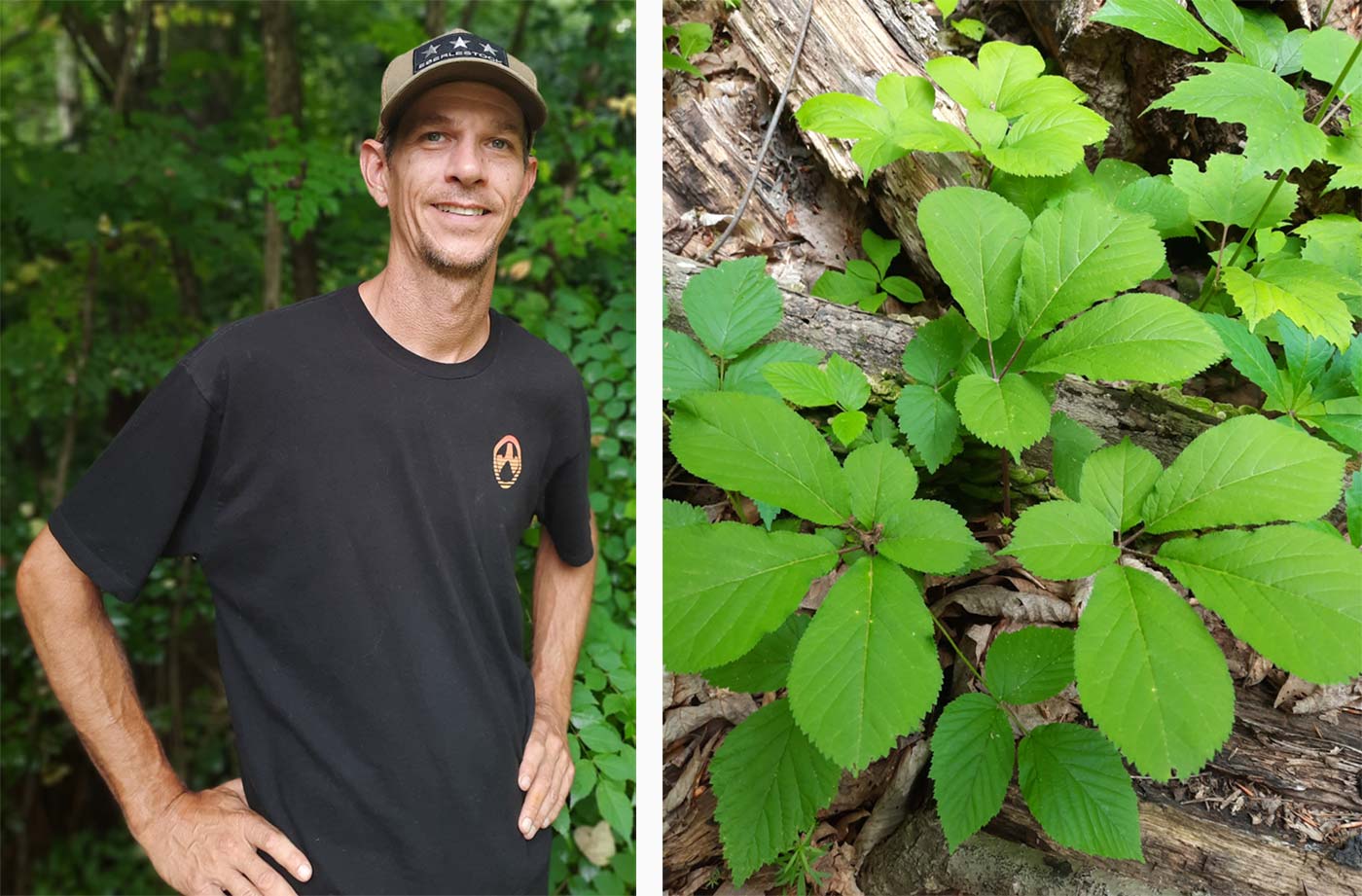Ginseng in the spotlight
For generations, American ginseng was a fairly well-kept secret of Appalachia.
Locals in rural portions of Ohio knew where to find the desirable botanical in the woods, tended to it and took pride in guarding their knowledge before passing it on to children and grandchildren. Ginseng had a mystique and a special, respected place in culture.
But then came the internet age, attention of the wider world and skyrocketing prices overseas for America’s ginseng.
Suddenly ginseng has become “green gold,” easy money and the subject of overhyped television shows. Prices shot up in recent years from $350 a pound to more than $1,000 a pound for dried ginseng, mostly exported to Asia. As a result, Ohio’s ginseng caretakers have seen dramatic and threatening changes.
“When people hear those numbers, of course they want to do a TV show about it or look for easy money,” said Chip Carroll, a long-time ginseng grower, dealer and evangelist in Meigs County. “It’s been a bit heartbreaking.”
Ginseng, which happily grows wild in the forests of southeast, central and portions of northeast Ohio, is highly desired in China where it is used in herbal medicine to promote stamina, among other uses.
The plant, which can live to be up to 100 years old, is incredibly slow growing, which makes it particularly vulnerable to various pressures, including habitat loss, climate change and poaching. Its precarious nature means that ginseng cultivation is highly regulated by state, federal and international law.
The season for digging ginseng in Ohio runs from Sept. 1 through Dec. 31 each year. Diggers do not need a license, but they do need written permission from landowners to collect the valuable plant. And they must follow detailed rules, including only digging mature plants, recording where they harvest their roots and immediately replanting the dug plant’s seeds in the same place.
Ginseng dealers, who can buy the roots with a permit, must submit detailed records and obtain ginseng certification documents before they can export the dried roots.
Unfortunately, ginseng’s value and the toll of the opioid epidemic on Appalachia have combined to fuel an increase in poaching as people who are desperate for cash see illegal harvesting as a way to get quick cash.
That’s why Carroll and other long-time ginseng community members are working on a variety of initiatives to conserve slow-growing ginseng and preserve its special place in the culture and economy of Appalachia.

(left) Chip Carroll; (right) Ginseng plant
A STRATEGY FOR CONSERVATION
Carroll is a Youngstown native who discovered ginseng as a Hocking College student in the late 1990s. He has worked for years as a steward, teaching would-be ginseng farmers and diggers sustainable practices.
Andrea Miller, the sustainable forestry manager with Rural Action, also is part of the movement dedicated to encouraging more sustainable care and cultivation of ginseng. Her agency encourages landowners to consider “forest farming” of ginseng and other botanicals such as goldenseal as an alternative to cutting timber from their wooded property.
Increasing the number of people growing their own ginseng could help take pressure off wild populations while also offering a passive-income source for property owners. The practice also helps build a community of engaged and knowledgeable ginseng caretakers.
Carroll also advocates for developing better opportunities for ginseng dealers to sell their product domestically. While about 99% of America’s precious ginseng harvest is exported every year, the ginseng Americans find here in products such as teas is ironically of low quality, he said. Developing a better domestic market would protect against any potential collapse in the Asian import market and also help American consumers, he argues.
GINSENG'S BOOST
With so much American ginseng being exported, many Americans haven’t had any firsthand experience using it. But as in China, American herbalists have found ginseng is beneficial for helping the body manage stress and for boosting energy, said Athens-based herbalist Erika Galentin of Sovereignty Herbs.
End even though it might be tempting to generously hand out a root known to improve energy, Galentin says a little ginseng goes a long way.
“Who wouldn’t want ginseng? Who doesn’t want more energy? But we can’t just go all take American ginseng for a boost,” she said.
Instead, Galentin said she uses ginseng—which she says tastes slightly sweet and woodsy, like ginger without the heat—in combination with other strategies, such as diet and exercise, and herbs meant to more holistically improve good health.
Galentin said use of ginseng is somewhat controversial because some herbalists question the ethics of buying a threatened plant that is often poached. “There are a lot of herbalists out there who believe we should not be using it at all because of its precarious position,” she said.
Galentin said she buys her ginseng from a local root dealer she knows and trusts. Like Carroll and Miller, she is devoted to using ginseng in a way that promotes responsible use and better public understanding of its cultural value as well as its monetary value.
“I really believe human beings and ginseng are meant to interact, but responsibly,” she said.
THE PATH TO SUSTAINABILITY
Miller learned about ginseng from her grandmother, who tended it in the woods. But she now worries about the plant’s future. “The more housing developments go up, the more habitat we’re losing,” she says. “We’re losing the plants in the wild with habitat loss, climate change and poaching. We’re losing the plant.”
The key to saving ginseng in its natural habitat—she, Carroll and Galentin all say—is to rebuild the special emotional and cultural connection between the plant and the people who live where it grows wild.
“I think of ginseng as a national treasure of our country, culture, environment and economy,” Carroll said.





